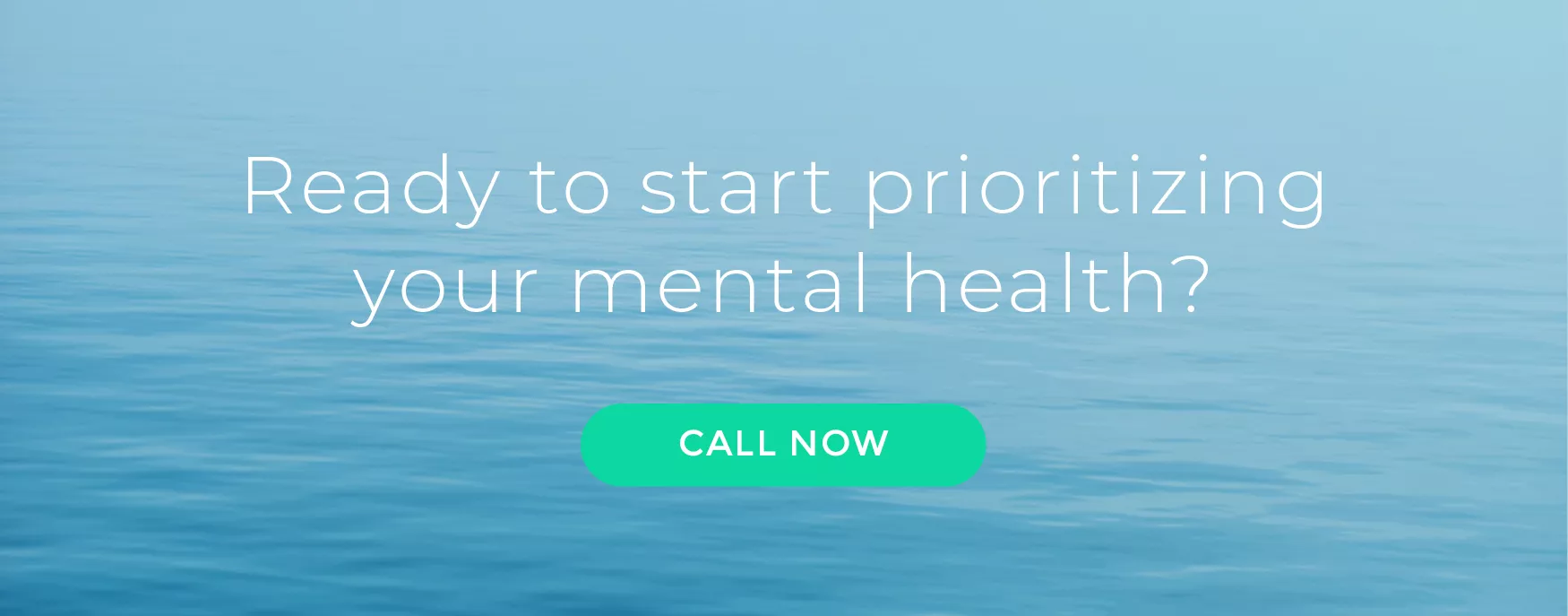Postpartum Depression Treatment
Are you feeling down after your baby is born?
Many women feel this way and it’s called postpartum depression. It’s a type of depression that can happen after giving birth. But don’t worry, there is treatment available.
At Amend Treatment, we specialize in seasonal postpartum depression treatment. We have a team of experts who can help you get your life back on track.
Take the first step today and call Amend Treatment at (833) 912-6363 to learn more about postpartum depression treatment.
Overview
Major Depressive Disorder (MDD) with Peripartum Onset (also known as postpartum depression) is a mood disorder that can affect new mothers. Symptoms typically begin within four weeks postpartum, but not always. The disturbance must be postpartum in onset and of sufficient severity to warrant clinical attention.
This condition is also often called postpartum depression, postnatal depression, post-maternity blues, or simply the baby blues.
Any woman can get postpartum depression, but women who have a past history of postpartum depression or postpartum psychosis are at increased risk.

Symptoms
Women may experience a wide range of symptoms of postpartum depression. As with any mental health condition, an individual may experience one or more symptoms at the same time.
The most common symptoms of postpartum depression include the following:
- Sadness and hopelessness
- Low energy and fatigue
- Anxiety, agitation, or restlessness
- Guilt, self-reproach, and self-doubt
- Difficulty concentrating and making decisions
- Loss of appetite (or increased cravings for specific foods)
- Feelings of worthlessness or guilt that may lead to thoughts of death or suicide
- Insomnia, including waking up early in the morning (sometimes called “night sweats”)
- Ongoing feelings of sadness postpartum that last for most days over two weeks
- Low self-esteem and poor body image postpartum
Postpartum depression symptoms may include some or all of these signs and symptoms.
Women with postpartum depression may also have postpartum psychosis, which can be very serious and dangerous. Symptoms of postpartum psychosis include:
- Hallucinations (seeing or hearing things that are not real)
- Delusions (thinking things that are not true)
- Paranoia (fears and ideas of being persecuted)
- Confusion postpartum
Postpartum psychosis symptoms may include some or all of these signs and symptoms. In postpartum psychosis, a woman has lost touch with reality. Because postpartum psychosis is rare, it is often overlooked as postpartum depression. If you experience postpartum psychosis, postpartum depression is likelier than postpartum psychosis.
Many women experience postpartum blues after the birth of their babies. Symptoms that last for a few days to two weeks after delivery. Postpartum blues do not require treatment and will usually go away without any medical intervention during the first couple of days postpartum.
Causes
Postpartum depression is caused by a combination of hormonal, physical, and emotional changes.
The most common causes of postpartum depression include the following:
- Emotional and physical changes postpartum
- Low self-esteem postpartum
- Relationship issues postpartum
- Stress postpartum
- Unfamiliar surroundings postpartum
- Unrealistic expectations postpartum (feeling that you are supposed to “be perfect” postpartum)
Women who have experienced one episode of postpartum depression are more likely to experience postpartum depression again in a future pregnancy.
Recurrence rates for postpartum depression range from as low as 15 percent to as high as 50 percent, depending on the research study and the diagnostic criteria used by the researchers. In other words, if you have postpartum depression once, there is a good chance that postpartum depression will recur in future pregnancies.
Diagnosis
Diagnosing postpartum depression can be difficult, particularly because postpartum blues and postpartum depression symptoms can look alike. In order to be diagnosed with postpartum depression, symptoms must be present for most days of the week postpartum and/or for two weeks or more postpartum.
The symptoms also must interfere with a woman’s ability to function postpartum and postpartum depression symptoms usually cause problems in relationships and/or at work.
If you suspect you may be experiencing postpartum depression symptoms and postpartum psychosis symptoms, contact your team of mental health professionals for help.
Treatment
Treatment for postpartum depression is vital, as untreated postpartum depression can have serious consequences.
Postpartum depression treatment may include medications and psychotherapy (therapy). The most common postpartum depression treatments are antidepressants, psychotherapy, or both.
Many postpartum depression treatments will include psychotherapy (therapy), support groups, and lifestyle changes. A postpartum depression treatment plan is different for every woman postpartum, as postpartum depression treatment plans are developed based on the specific needs of the individual. It’s best to work with a postpartum depression treatment team consisting of postpartum depression experts such as postpartum depression therapists, postpartum depression doctors, postpartum depression nurses, and postpartum depression counselors.
At this time, there is no known home remedy or postpartum depression cure. However, the following lifestyle changes may help:
- Exercise regularly postpartum
- Eat a postpartum depression diet postpartum
- Sleep postpartum
- Keep stress postpartum at a minimum postpartum
Postpartum depression treatment with medication usually involves taking antidepressants. You may need to try several different types of antidepressants before finding the one that works best for you.
Postpartum Depression Treatment at Amend Treatment
If you feel depressed after your baby is born, you may be experiencing symptoms of postpartum depression.
You’re not alone.
An estimated 70% to 80% of women will experience the baby blues and many of these women will experience the symptoms of postpartum depression.
At Amend Treatment, our team of mental health professionals will guide you through your recovery using evidence-based therapy.
Contact Amend Treatment to learn how postpartum depression treatment can help.

